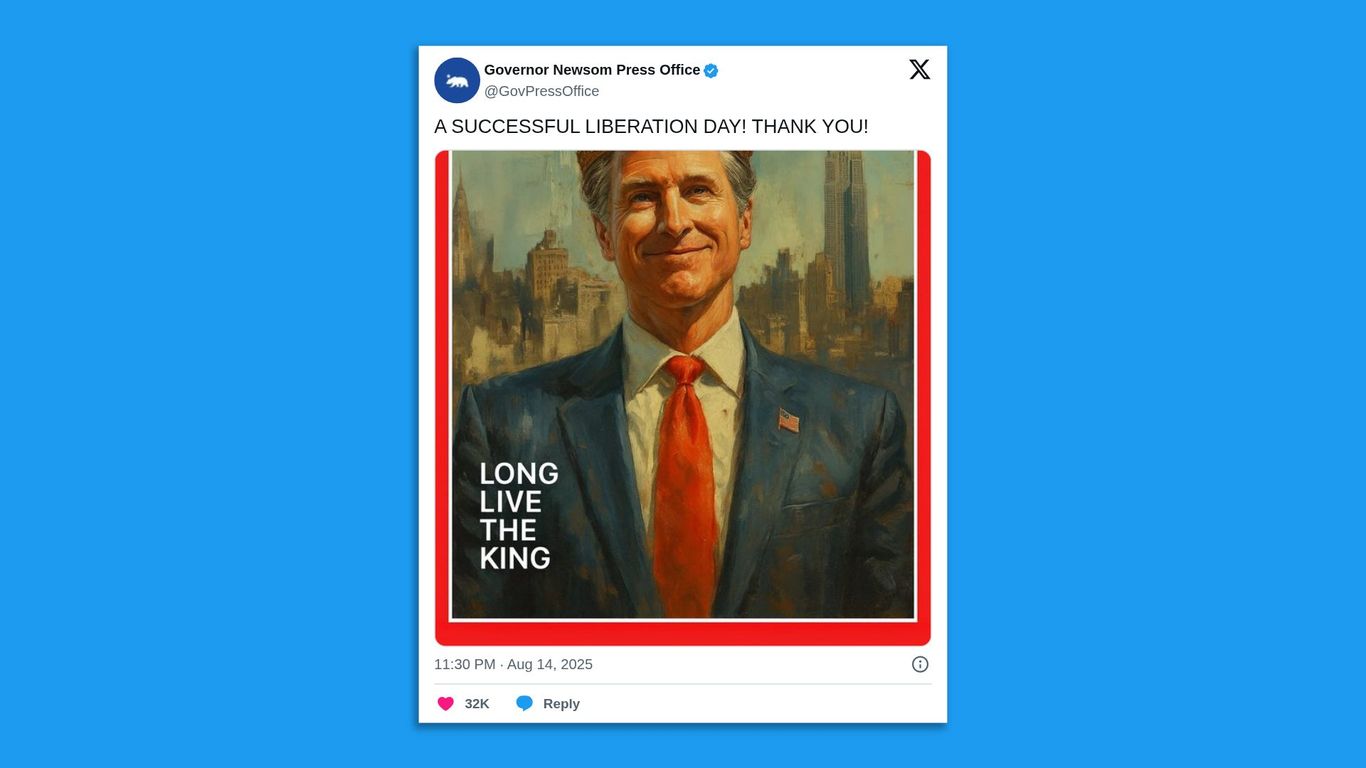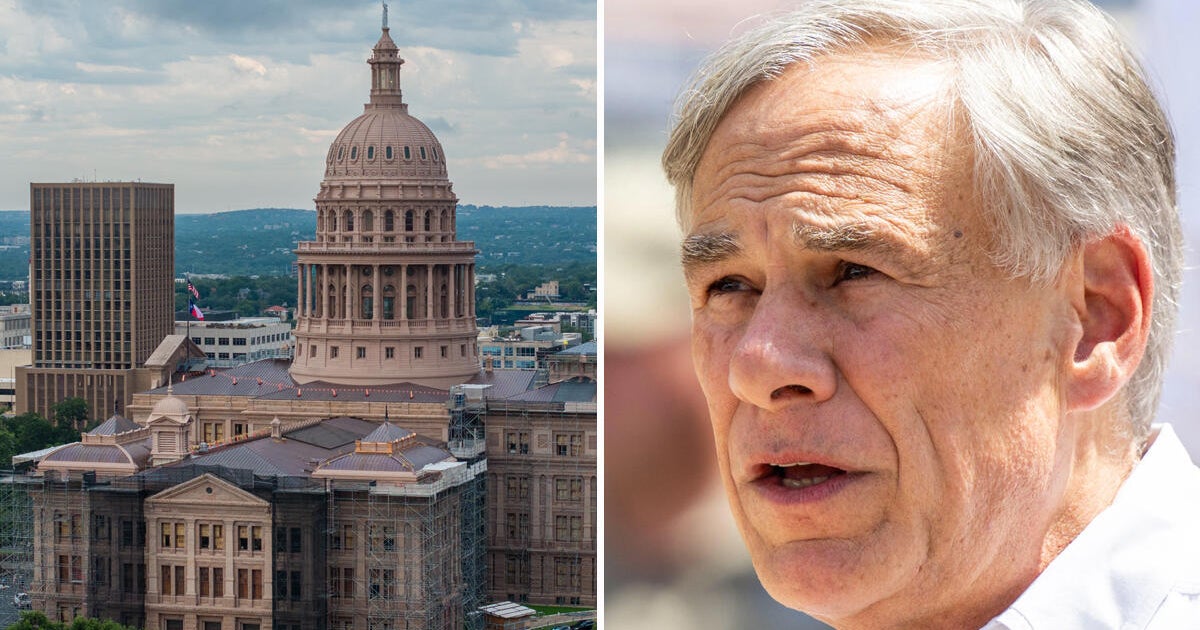Missouri Governor Calls for Special Session on Redistricting

Introduction
Missouri's Republican governor, Mike Kehoe, has called for a special session on redistricting. This announcement comes on the heels of Texas GOP governor Greg Abbott signing into law a new congressional voting map that aims to help Republicans gain five more seats in the 2026 midterm elections.
Key Details
This move by Kehoe is seen as a response to Abbott's actions, with Missouri also being a Republican-controlled state. Redistricting is the process of redrawing electoral boundaries to ensure equal representation for all citizens. However, it is often used as a political tool to gain an advantage. In Missouri, the state legislature is responsible for redistricting, but with Kehoe's special session, it is likely that he will have a more hands-on role in the process.
Impact
The timing of Kehoe's announcement, just hours after Abbott's signing, highlights the intense political battles over redistricting across the country. With Republicans holding a majority in both Missouri and Texas, this move could have significant implications for the balance of power in Congress. It also brings to light the importance and potential consequences of redistricting on elections and representation. Only time will tell how this special session will shape the future of Missouri's congressional districts.
About the People Mentioned
Greg Abbott
Greg Abbott, born Gregory Wayne Abbott on November 13, 1957, in Wichita Falls, Texas, is the 48th governor of Texas, serving since January 2015 after winning elections in 2014, 2018, and 2022.[1][2][4] A Republican and staunch conservative, he previously held the position of Texas attorney general from 2002 to 2015—the longest tenure in state history—where he defended state rights, religious liberty, and frequently challenged federal policies under the Obama administration.[1][2][3][6] Abbott's early career included roles as a state district judge in Harris County starting in 1992 and as a justice on the Texas Supreme Court from 1996 to 2001, appointed by then-Governor George W. Bush.[1][4][6] In 1984, at age 26, he was paralyzed from the waist down after a tree fell on him during a jog, requiring him to use a wheelchair; he became the first U.S. governor to do so since 1982 and only the third in American history.[1][2] As governor, Abbott has prioritized low taxes, budget cuts, economic growth, education funding, and border security through Operation Lone Star, including deploying troops, installing razor wire and buoys, busing migrants to sanctuary cities, and declaring Mexican cartels as terrorist organizations.[2][3][4][5] He signed constitutional carry legislation in 2021, allowing permitless handgun carry for most adults over 21, amid mass shootings like Sutherland Springs in 2017.[1] His administration has overseen record job creation, property tax reforms, bans on sanctuary cities, and protections for the unborn.[3][4][5] Disputes with federal officials over border measures persisted into 2023-2024.[2] In July 2025, Abbott declared a state of emergency after severe central Texas flooding killed over 150 people, securing federal disaster aid.[1] He remains a prominent national conservative figure, named "Best Governor in the Nation" in 2020.[5]
About the Organizations Mentioned
Republican Party
The **Republican Party**, also known as the **GOP (Grand Old Party)**, is one of the two major political parties in the United States, founded in 1854 primarily by anti-slavery activists opposing the Kansas-Nebraska Act and the expansion of slavery into U.S. territories[1][5]. It was formed from a coalition of former Whigs, Democrats, and Free Soil party members who shared opposition to slavery and a desire for a national political force promoting economic development and social order[2][5]. The party's early base included northern Protestants, businessmen, factory workers, professionals, and prosperous farmers. It strongly supported pro-business policies like the national banking system, the gold standard, railroads, and high tariffs[1][3]. Abraham Lincoln, the first Republican president elected in 1860, led the party through the Civil War, championing the abolition of slavery and the preservation of the Union. This solidified the GOP’s dominance in national politics for decades, especially in the North, while it remained weak in the South[1][5][6]. Historically, the Republican Party was instrumental in major social reforms, including the Emancipation Proclamation and the passage of the 13th, 14th, and 15th Amendments, which abolished slavery, guaranteed equal protection, and secured voting rights for African Americans, respectively[6]. The party also supported women's suffrage early on, backing the 19th Amendment[6]. In the 20th century, Republicans were associated with both conservative economic policies—favoring reduced taxes, limited government regulation, and individual economic freedom—and a strong national defense[7]. The party experienced ideological splits, notably in 1912 when Theodore Roosevelt led a progressive faction away from the conservative wing[1][5]. Today, the GOP continues to promote conservative social policies and states’ rights, opposing extensive federal intervention and advocating free-market principles[7]. For readers interested in business and technology,















